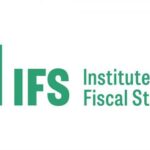
PANCo Training Qualification Supports Prevention of Obesity in Early Years
Launching this week, NDNA’s PANCo training, qualification and specialist role promotes positive nutrition and physical activity to support the prevention of obesity within early years settings.
A PANCo (Physical Activity and Nutrition Co-ordinator), is a named and qualified member of staff who leads on the health and well-being within an early years setting, champions best practice and implements change where required. The qualification is recognised as an NCFE CACHE accredited Level 4 award.
According to the National Child Measurement programme (NCMP) December 2023, more than one in five children (22.3%) aged four to five years are overweight or obese and in a study of five-year-olds in England, the national prevalence of children with tooth decay was 29.3%.
The PANCo role is suitable for learners who are over 18 and working within early years settings with at least a Level 3 Early Years/Childcare qualification.
By adopting the PANCo model the designated learner achieves a specialist qualification and has the credibility to promote the importance of physical activity and healthy eating within their setting. Building knowledge and understanding gives a practitioner the confidence and skills to lead the well-being practice and support children and staff, while extending this to parents and the home learning environment.
Purnima Tanuku OBE, Chief Executive of National Day Nurseries Association (NDNA) said: “We know that parents and the home environment are key to encouraging healthy lifestyles, but with over 1.5 million children attending early years settings every day, early years practitioners are uniquely placed to play a vital role in the future health and well-being of our children. This is a crucial stage of their development where we can instil healthy habits that will last a lifetime.
“The first five years of a child’s life really count. This is when 90% of brain development occurs and children need to be nourished mentally and physically to allow them to reach their full potential and have the best possible start in life.
“NDNA’s PANCo qualification is NCFE CACHE accredited and recognises the importance of the first five years of a child’s life. Through the PANCo programme an early years professional can promote a culture of health and well-being within their setting to benefit children, staff and families.
“While there is no shortage of government guidelines, there is often a missing link in sharing and applying this information in practice. The role of the NDNA PANCo is to act as the trained and informed link who is responsible for promoting the value and benefits of physical activity and healthy eating within the setting.
“Having these knowledgeable and qualified staff in settings can help improve outcomes for children and boost their wellbeing. It also shows the value that high-quality early education and care can deliver for families and children’s futures.”
The PANCo programme is a three-part process starting with The Start Life Well Assessment. This assessment provides the opportunity for a setting to identify their specific needs, which the PANCo will then use to plan and implement their ‘well-being in action’ intervention.
The PANCo programme provides settings with a framework and a pathway to follow, and because it compliments curriculum guidelines, policies and current practice, is more easily adaptable to integrate into existing health and wellbeing policies while supporting children, families and staff.
PANCo Founder, Linda Baston-Pitt commented: “I strongly believe that Early Years providers are in a unique position to make a real difference to the future health and wellbeing of our children and are key in helping to mitigate the effects of the obesity crisis.
“However, the missing link in many settings has been a person who is trained in, and responsible for promoting health across the setting. This was one of the key reasons I created the Physical Activity and Nutrition Coordinator role (PANCo) which is now at the forefront of that endeavour.
“We are already starting to see that the role of the PANCo is having a positive impact not only on the well-being of children and families but on the whole staff team, as well as opening up new career opportunities for Early Years professionals.
“I am very excited to be working with NDNA on the next stage of the PANCo journey as the programme is transferred into their safe and capable hands. I have trusted and known NDNA for many years and it’s wonderful that they share my ambition for every early years setting to have a PANCo and to put the physical activity, nutrition and health and well-being of children at the forefront of practice.”
Becoming a PANCo provides the opportunity for continuous professional staff development as they share their knowledge and skills whilst boosting confidence and self-esteem within their teams and when talking to parents.
As a qualified PANCo, Gaynor Rooney of Dandelion Days Nursery said: “The PANCo programme was easy to implement and practice in our setting and is now second nature to staff.
“Since completing the course, we promote the importance of healthy lunch box ideas and suggest sugary swaps and I’m more aware of sharing healthy recipes with families.
“The children now get involved in cooking and planting vegetables, using tubs and hanging baskets as we don’t have a lot of space, and they take part in energetic activities throughout the day to support and promote their physical development.”
The NDNA PANCo course is developed to be flexible, allowing learners to work at their own speed with additional support from a tutor. The course can be started at any time and must be completed within three months. Based on 10 weeks of study, there is an expectation of three hours study per week and an additional 10 hours of workplace activities within this timeframe.
- England
Similar Articles
IFS: This year’s funding rates 22% lower in real terms than in 2017

Disappointment as Scottish Budget fails to address funding system inequalities


